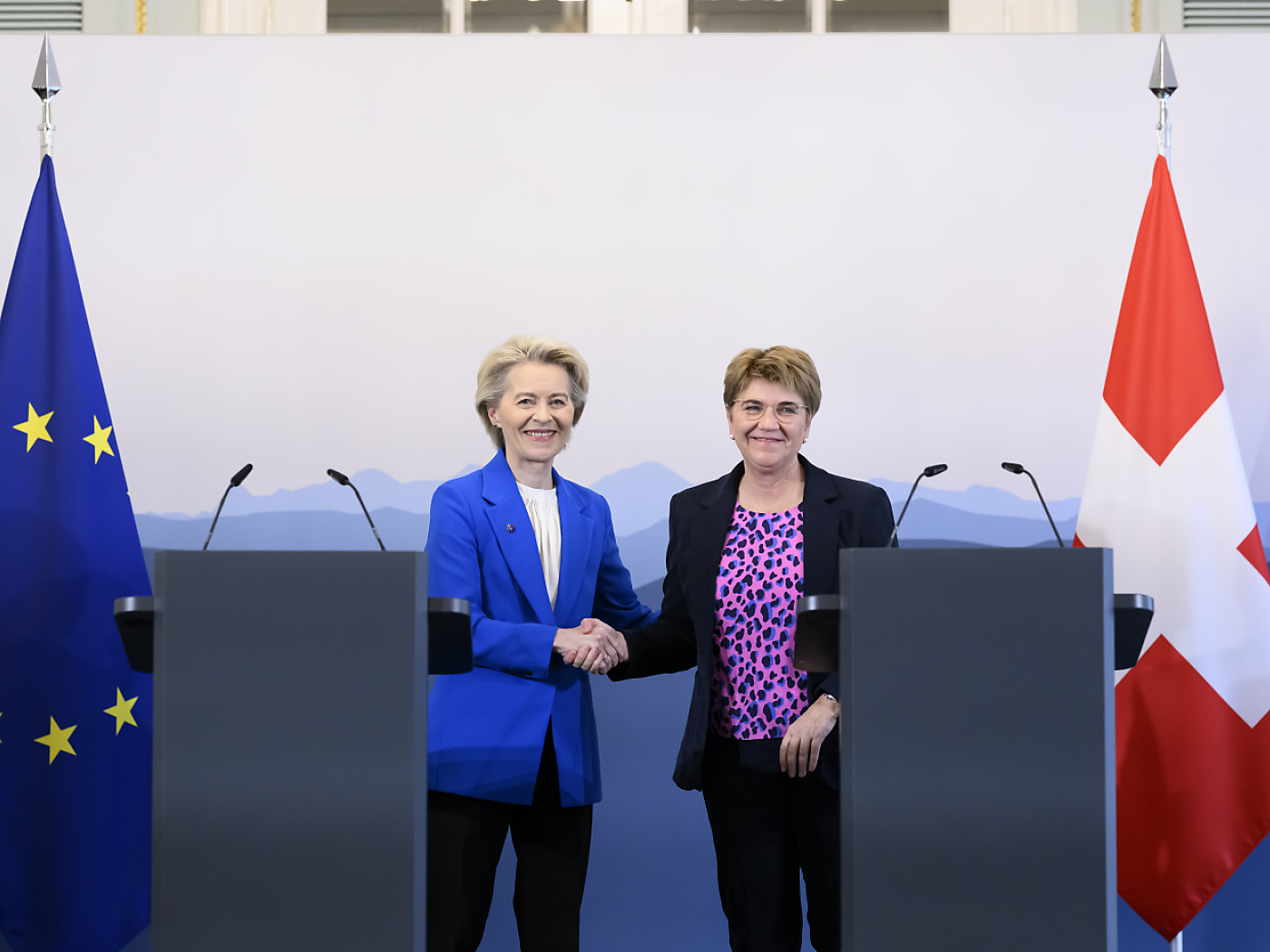Fighting for freedom of speech

The 18th World Press Freedom Day is a time to remember that working in the information field can come at a high price.
The president of the Swiss section of Reporters Without Borders tells swissinfo about Tunisia, where two men are on hunger strike to fight for their rights.
“Tunisia is among around 30 countries that we qualify as predatory, where either the citizens or journalists are followed, threatened or imprisoned,” explained Gérald Sapey.
These countries do not allow for opposition, are dictatorships or are seen to “put a muzzle on democracy”, he said.
It is a harsh reality for Rachid Khechana, secretary general of the Progressive Democratic Party, correspondent for swissinfo and editor-in-chief of the weekly Al-Mawquif, one of three opposition newspapers in Tunisia.
On May 10 he will appear in court with the newspaper’s manager to respond to accusations that the publication caused distributers of food oil to lose several hundred thousand dollars after writing that their products had been tampered with and should be tested.
It is just another problem for Al-Mawquif. The newspaper is also a voice for the party that wants to present an opposition candidate to stand against President Ben Ali when he seeks another five-year term next year.
Since the start of the year it has been illegal to distribute Al-Mawquif in kiosks and the newspaper’s bank accounts have been blocked. So Khechana and his manager went on a hunger strike a week ago – a frequent practice among pro-freedom activists in Tunisia.
swissinfo: You perceive a significant toughening of force against you. Why is it happening now? Have you crossed a line?
Rachid Khechana: Not at all, it’s just that we are coming up to the legislative and presidential elections of 2009. And the party in power, which in our view heads a single-party state, is preparing for its conference in August and doesn’t want any conflicting opinions. There has therefore been a withdrawal of freedom ahead of the election.
It is true that some progress has been made in recent years, thanks to the struggle of civil society, journalists, defenders of human rights and opposition parties. The World Summit on the Information Society in Tunisia in 2005 forced the government to change a few things. And now we are taking a step backwards…
swissinfo: The then Swiss president, Samuel Schmid, pushed for action supporting human rights at the summit. Did that have any results?
R.K.: Change cannot be achieved in one go; it takes small steps. And each time Tunisian civil society is discussed abroad I think that cracks the whip in this democratic fight. It can therefore only be beneficial and positive for the democratisation process of our societies.
What’s more, we receive many emails, telephone calls and letters of support in favour of our fight and for this hunger strike in particular.
swissinfo: Is your fight shared by Tunisian society? Don’t people have more urgent worries than achieving democracy and freedom of the press?
R.K.: People here are like those everywhere: food and shelter is their first concern. Tunisians are mostly peaceful people, but they can become violent if one tries to touch their bread or that of their children. We had two major riots in 1978 and 1984 that were known as the “bread riots”.
But apart from that, when the margin of freedom is enlarged, participation increases noticeably among the people in public matters. To the point that opposition newspapers sell much more during democratic times than when liberties are curbed.
I would say that once material and social needs are satisfied, citizens can think about others and reach a state that I would call superior and take part in city organisation.
swissinfo: Today marks the need for freedom of the press. Why is this so important?
R.K.: It is necessary not only for democracy but for all the other reforms this country needs. Because if civil society has no means of making itself heard, all the efforts of the supporting Tunisian organisations will have no effect.
swissinfo-interview: Marc-André Miserez
“It is not acceptable that the UN has member states that imprison their citizens for the sole reason that they criticise the authorities on the internet or in the press.” This statement from the then Swiss President Samuel Schmid headlined the 2005 World Summit on the Information Society newspaper and hardly endeared him to the Tunisian leader Ben Ali.
Schmid added: “For me it is normal that here in Tunisia, and elsewhere, people should be able to say what they think.” As organiser of the 2003 stage of this conference in Geneva, Switzerland believed that its duty was to say what other states might not have dared say.
It was too much for the public television station Canal 7 which cut short the broadcast. Access to swissinfo from within Tunisia was also stopped after it reported the incident.
During the closing ceremony of the summit the Swiss transport minister, Moritz Leuenberger, once again took up the theme, this time in a more diplomatic tone.
This episode cooled relations between the two countries. Tunisia recalled its ambassador to Bern almost immediately and ever since the Tunisian embassy in Switzerland has been led by an official representative.

In compliance with the JTI standards
More: SWI swissinfo.ch certified by the Journalism Trust Initiative












You can find an overview of ongoing debates with our journalists here . Please join us!
If you want to start a conversation about a topic raised in this article or want to report factual errors, email us at english@swissinfo.ch.